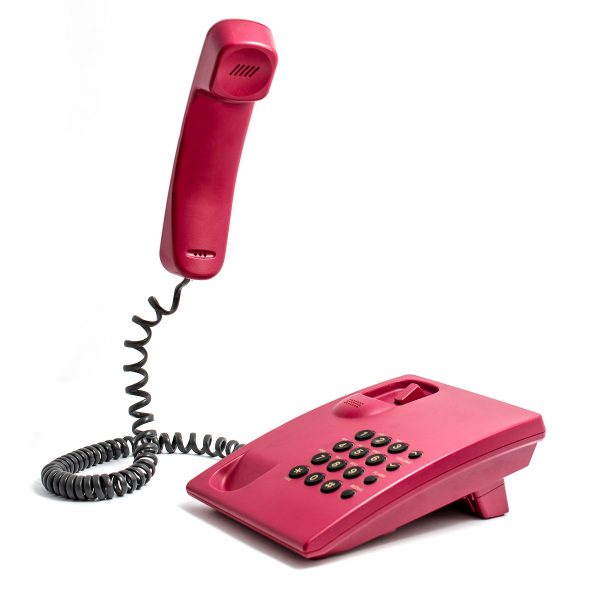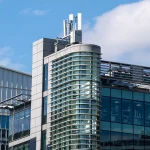Ofcom UK Tweak Geographic Phone Numbering and Local Dialling

Ofcom has today set out their final changes to the rules that govern the use of phone numbers in the UK, which has opted to retain the existing rules on geographic numbering and remove the obligation on telecoms providers and broadband ISPs to provide local dialling to customers.
Back in 2019 the regulator moved to review how phone numbers would be handled and ported in the future (here), which was intended to reflect the rapidly increasingly move away from traditional fixed line analogue phone (PSTN / POTS) services and toward modern Internet Protocol (IP / VoIP) based digital voice platforms.
In the past it was normal to take a landline phone and then broadband was treated as an optional add-on, but today most of us only use our fixed line for broadband. As a result, the home phone service often goes largely unused and has now become an optional extra (i.e. people prefer the affordability of mobile phones, VoIP and internet messaging).
Advertisement
However, the shift to all-IP style networks and VoIP products also creates new challenges, such as in terms of how you handle phone numbers that are more likely to be associated with a person or family than a specific geographic location (i.e. phone numbers are becoming more flexible and portable).
Ofcom have been trying to answer this via a number of changes, such as via the forthcoming One Touch Switch (OTS) process. But they’ve also been reviewing their rulebook for phone numbers in the UK – called the National Telephone Numbering Plan (the Numbering Plan) – and have now finalised their position.
Ofcom’s Numbering Plan Changes for 2022
Maintaining landline phone area codes
We are keeping the existing rules on geographic numbering which allocate the first few digits of a landline phone number to an area (the area code) and provide location significance. Although IP networks do not require area codes to route calls in the same way as legacy networks, and recognition of the geographic link between phone number and location is declining, it is still valued by some people and businesses. We have therefore decided not to remove this link.
These rules permit out-of-area use of geographic numbers which we consider provides an important degree of flexibility in number use for people and businesses.
Removing the obligation on telecoms providers to provide local dialling
Local dialling lets someone make a call from one landline to another landline in the same area without dialling the area code. We are removing the requirement to provide local dialling on landline phone services since we consider that the value of this facility to phone users has declined and it is more complex to provide on IP networks. We anticipate that telecoms providers are likely to remove this facility as they migrate landline customers to new IP voice services.
We have set out our expectations for measures that telecoms providers should take when removing local dialling to mitigate any risk of confusion or harm for their customers.
Ofcom’s previous consultation on this area also proposed a measure to remove the incentive for “cash for calls” schemes. When a phone company divides the revenue that it receives for terminating a call with the calling party, this provides an incentive for making calls. Such schemes incur costs for the phone companies originating the calls, and these costs could ultimately be passed on to their customers.
The regulator indicated that it could tackle ‘cash for calls’ by prohibiting the sharing of revenue with calling parties, but as it stands they are currently still “considering the responses received and gathering additional information” before announcing a final decision on this.
Advertisement
Separately, Ofcom said they were also continuing to examine the future role for 084 and 087 non-geographic numbers.
Mark is a professional technology writer, IT consultant and computer engineer from Dorset (England), he also founded ISPreview in 1999 and enjoys analysing the latest telecoms and broadband developments. Find me on X (Twitter), Mastodon, Facebook, BlueSky, Threads.net and Linkedin.
« Netflix Hikes UK Prices for Internet Video Streaming Service





















































As modern telephony has broken the link between an area code and a physical location then:
“We have therefore decided not to remove this link”
What is it that they’re not removing, exactly? Perhaps they’re saying that all the analogue lines on an exchange can only have that exchange’s area code. But why would keeping this restriction make any difference to anybody who actually cares about this?
No need for 084 and 087 numbers now, scrap them. Users can get the equivalent 034 and 037 number.
Agree, most companies often offer 087/084 and 034/037 interchangeably. Yet the prices to call them are considerably lower on the 03 versions. Meaning only a crazy person would dial the 08 version. Just get rid of them and force everyone to use 03.
Some companies depend on revenue sharing like Hospedia who operate bedside patient phone and TV services, outgoing calls to 01,02 and 03 numbers are free to call however the company pays rental fees to the NHS trusts and the money has to come from somewhere and incoming calls are received by someone dialling an 0872 number, they previously used 070 numbers but revenue sharing was scrapped for these type of numbers.
Also as a business it should be up to you whether you want to charge your customers a premium for support over the phone, if people don’t want to pay the premium, then the companies website and live chat features are there for customers, if I had a business I would charge a premium for telephone support and if Ofcom stopped revenue sharing, then I would end telephone support.
Companies/services who already operate in this way are GiffGaff and Voxi, there’s very little support if at all any, I think Quidco is the same, everything is online.
EU rules meant that you could no longer charge a premium for Customer service support which is how the 03 numbers came into existence, at the time Freephone numbers 0800/0808 and the former 0500 were chargeable from mobiles until 1st July 2015 and companies had to also provide a 03 number alongside the Freephone numbers.
@anthony goodman,
Companies that require their phone support to be premium should set up a side channel for billing such customers.
For example, ISPs already have a relatively with their customer and can levy additional fees for phone support.
In the same way hospital phone lines can bill the caller directly for their call. They already have facilities in place for users to rent movies, which means they have billing capabilities built into the system.
The cost of making a phone call should always be a defined rate set out in the caller’s contract with their phone company based on the cost of providing the service and profit, not any arbitrary additional costs lumped in by the target phone number, as these can be very hard to properly communicate and acquire consent for.
I do have a feeling people having to suddenly type in 0191, or whatever code for their local region, when making a local call will get a backlash from people. Especially the elderly.
BT have already been insisting on full number dialing for quite a while on their Digital Voice platform.
https://www.ispreview.co.uk/index.php/2020/11/isp-bt-change-digital-voice-calling-for-local-uk-numbers.html
Us elderly can cope.
Reminds me of this https://www.youtube.com/watch?v=3aGPrpGh5mU
I really can’t see the huge and expensive technical issues around an ability to dial a local number without the code, if it’s still determined as relevant and valuable (and I can’t see a time when it wouldn’t be realistically), what’s the problem in running a basic script for new customers to say if number is 2xn to 9xn (apart from the obvious 999) then prefix the number with the local code and dial out. It’s what I do on Asterisk numbering plans and has worked fine for years.
Agreed Steve, I struggle to see how retaining local dialling is some sort of insurmountable issue.
Excellent idea, Steve! The phone’s contact or speed dial list could include an entry for the default area code, set up only once or when the code changes.
UPDATE: I have just set up my local area code in my speed dialling list (BT4600 phone). I made a successful call by using the speed dial, then entering the rest of the number by hand. I also used another speed dial entry to phone my mobile in the same way, and it worked. Note I am still on PSTN, so hopefully it will work on digital voice.
It’s a right pain
Optimist, good idea using a speed dial but my suggestion was aimed at the providers when setting device dial plans. IP phones can have a dial plan that tells them how to treat certain numbers, so for instance setting 2 = 020 2xxx xxxx(so) is an example of someone in London area dialing a number beginning with 2, the system recognising it has to wait for 7 other numbers, once it’s received all numbers it dials ‘straight out’. This is all achieved either on a phone’s dial plan, or a phone service such as Asterisk, Cisco call manager or the provider itself.
It also lets short codes work without pausing, so for instance 999 would be programmed as straight out on the plan so there’s no waiting. I tend to set a rule to also forward 911 to 999 in the UK as best practice (112 doesn’t need forwarding as that’s provided alongside 999 in UK).
As far as I know, the IP phone services being rolled out with fttp don’t have any provision to set a custom dial plan in this way to the end consumer, but it is easily possible for them to do it during provisioning.
Steve, do you think there will be sufficent demand for phones with the local dialling feature as you describe? Some years ago I would have said yes, but as the number of calls from landlines is falling infavour of mobiles where all digits are required, I think that sales will be low. We’ll see!
For Sipgate set the “Automatic area code” as required, the area code entered will prefix any local numbers. Calls to 999 not affected.
We are having fibre pulled in this week.do you have to come in side & change the master socket.
I have 3 other phones in different rooms that are working from the master phone will this still work.
Are BT charging to fit new sockets.or are they giving me a new phone.
I know very little about the changes as a retired BT external engineer.
Are you providing new drop wire into my house.l am with Talk Talk because as l retired from BT they took my free broadband away without coming to an arrangement with me.
I gave 27 years to BT what happened to loyalty.
Is there any information coming through the post saying what & when this will happen.
We have some people going around saying they are BT but they not & conning people in Bexley Kent.
Graham, your drop wire will be replaced and you will have an ONT installed which your hub connects to. Your master socket may be removed but it will become redundant. On your new equipment there will be a BT style socket that you can plug any existing phones into (although pulse dialling isn’t supported) and you get a cordless phone with the equipment. That means if you want any existing hardwired extensions, you’ll need to get a junction box and a cable with a BT plug that connects to the junction box, you can then plug them into the back of the new equipment and they’ll work that way.
Sorry to hear about your service termination when you retired,I don’t know any provider who lets retired staff keep free services though.
As a Talk Talk customer, BT has no involvement in your service. Talk Talk supply the service over the Openreach network. OR will supply the fibre line terminating at an ONT sited where you want (within reason) in your property. TT would be responsible for any changes to your pstn service and for how you access any VoIP service they may introduce. I am also sure that you are aware that Openreach are not responsible for any internal wiring after the ONT or master socket as this is your own responsibility.